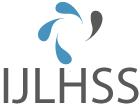Paper Type: Research Paper
Title: Gender Inclusive Legislative Drafting in Rwanda: Which Approach?
Research Area: Law
Author(s): Richard KAYIBANDA
Volume 2 - Issue 1
Abstract: In efforts to promote gender equality, the choice of the language to use in legislative drafting is of relevance. In this regard, legislative drafting principles require the use of a gender neutral terminology during law writing process. To ensure gender bias free legal texts a number of techniques are used, inter alia, the ‘masculine rule’, ‘two-way rule’, ‘all-gender rule’ and ‘separate gender rule. However, each of these rules has got advantages and disadvantages either from a gender promotion perspective or the legislative drafting perspective. This paper has investigated the approach Rwanda has taken as part of its efforts towards gender inclusive language legislation and sought to ascertain whether the same approach complies with legislative drafting principle of gender neutrality. After the review of various legal texts into force, it has been realised that Rwanda uses the ‘separate gender rule’ which, from a legislative drafting perspective, sins against the principle discouraging the use of stylistic variations.
Paper Type: Conceptual Paper
Title: The Psychology of E-learning
Research Area: Psychology
Author(s): Nabia Luqman Siddiquei, Dr. Ruhi Khalid
Abstract: This article represents our views regarding the psychology of e-learning which is emerging as a significant, more promising and more interdisciplinary field of study. The purpose is to endorse knowledge, capability and skills in the minds of young learners to enhance both quality and quantity of learning. This paper discusses the well-known learning theories and elaborates its implication within the context of online courses. The theories include: behavior, cognitive and constructive. Further, the effect of these learning theories on implementing e-learning courses is identified in this paper. It will help the researchers to design and develop appropriate e-learning courses and enhance learning process for e-learners. The paper proposes that learning material for e-learning must contain activities based on the learner’s related learning style. This paper aims to provide better practices to design e-learning courses based on the principles of learning theories.
Paper Type: Conceptual Paper
Title: Emerging Trends of E- Learning in Pakistan: Past, Present and Future
Research Area: Education
Author(s): Nabia Luqman Siddiquei, Ruhi Khalid
Abstract: E-learning is increasingly becoming a powerful and leading avenue of education in developed countries. The need for substituting traditional pedagogy with emerging models of e-learning is now becoming more pronounced in developing countries such as Pakistan. The conceptual realization amongst stakeholders is in the process of becoming a practical reality as various initiatives are in process but there are various hurdles and challenges that need to be addressed. The paper discusses the developments in e-learning education sector of Pakistan and identifies the obstacles in its future course. The research endorses adaptation to e-learning as a paradigm shift that involves restructuring on both technical and human frontiers. The human aspect involves the existing psychological orientation of teachers and students, who, due to various socio-economic, socio-political and socio-cultural factors, are prone to resisting the paradigm shift. The technical aspect includes institutional barriers and limitations in curriculum intervention. The research proposes e-learning as a potential revolution in the education sector of Pakistan as it is cost effective and performance maximizer.
Paper Type: Research Paper
Title: Law, Insurance Business and the Implications for Sustainable Development in Nigeria
Research Area: Law
Author(s): Dr. Williams A. Adebayo
Abstract: Insurance policy is one of the tools for economic development and invariably the realization of the goals of sustainable development. The developed countries of the world have taken full advantage of insurance business to confront the likely impediments to the goals of sustainable development. Here in Nigeria, environmental threats and other social and human problems have continued to act as barriers to economic activities. These threats and problems are not insurmountable considering the relevance of insurance in every economy as means of mitigating unforeseen adverse occurrences. The insurance system of the financial sector has failed to make any meaningful contribution to the Gross Domestic product because of some avoidable man-made constraints. The objective of this study is to tackle the challenges faced by insurance business in Nigeria with a view of making insurance business contributes its quota to the goal of sustainable development. In carrying out this study, the legal frameworks regulating the business of insurance in Nigeria, textbooks, journal articles and practical occurrences as reported by newspapers and the internet form the source of the materials. The study revealed that the contribution of Insurance business to the Gross Domestic Product is abysmally low. This is not supposed to be so in view of the available markets for insurance in Nigeria which remained unexplored. This study recommended that the stakeholders as well as the government and regulatory agencies should co-operate to dismantle the barriers that have impeded the contribution of the insurance business to the financial sector of the economy.
Paper Type: Research Paper
Title: Designing Comprehensive Model of Corporate Governance in Service Section
Research Area: Social Science
Author(s): Babak Ziyae, Farzad kafaee
Abstract: Today, corporate governance is known as an ability to obtain financial and management health. In this regard, the Open Innovation provides useful and efficient ways to achieve strong corporate governance. Given the lack of research on open innovation to deal with the ultimate goals of corporate governance in the insurance industry, the present research has been conducted. This study has been done due to the lack of theoretical literature in this respect and the goal of this study is to design a model of corporate governance with open innovation approach in the insurance industry. The sample consists of 8 faculty members and insurance industry experts who have been selected based on purposeful sampling procedure. This research, based on aim is an applied one and based on collecting data through interviews, it is considered as field research. The site of the research includes the insurance companies listed on Tehran Stock Exchange and the duration of this inquiry ranged from the beginning of 1395 till early 1396’s.The results of the interviews and data analysis by Atlas/ti software confirmed all the research questions. According to research findings, open innovation at inbound, outbound and composition are defined as strategies that enhance corporate governance. Research findings recommended open innovation strategies of various ways to solve the problems of corporate governance should be used in the insurance industry.

